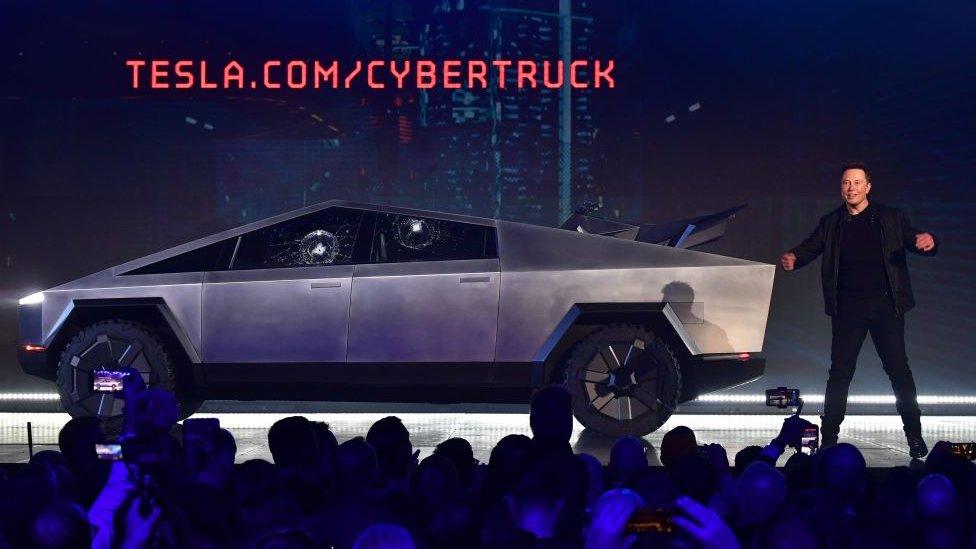Tesla: German court halts factory plan over snake and lizard habitats
- Published
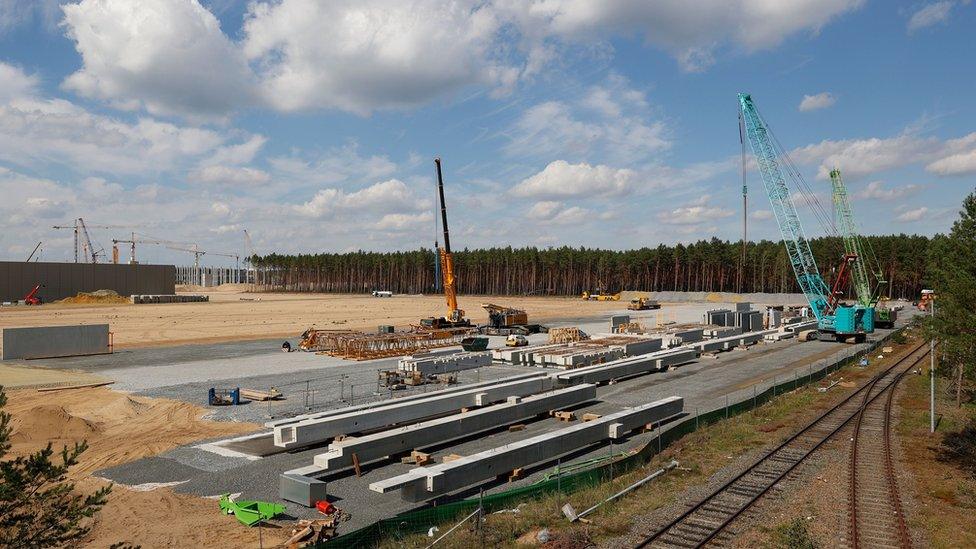
Environmentalists argue Tesla's Grünheide site will endanger local snake and lizard species
Tesla has been ordered again to suspend preparations for a car factory in Germany after a successful court injunction by environmentalists.
The electric carmaker has been clearing forest land near the capital, Berlin, for its first European car and battery plant.
But opponents argued this will endanger the habitats of lizards and snakes.
A court in Frankfurt an der Oder ordered forest clearing to be halted, pending further examinations.
A similar court order was made earlier this year about Tesla's plans for what it calls the Gigafactory in Grünheide, in the eastern state of Brandenburg.
The earlier ruling was in response to concerns about wildlife and the water supply.
Tesla has not publicly commented on the latest ruling, resulting from an ongoing legal dispute with the Nature and Biodiversity Conservation Union (NABU) and Green League. A final decision on the case is still pending.
The environmentalist groups say Tesla's deforestation will destroy the habitats of sand lizards and smooth snakes, both of which are protected species. They have also expressed concern that the building work will disturb these reptiles during their winter hibernation.
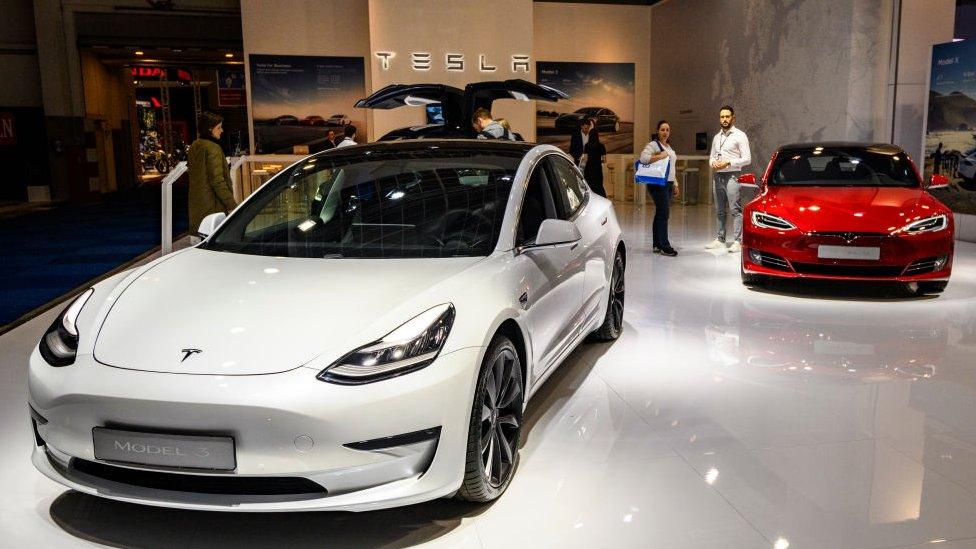
Advertising for Tesla's Model 3 (left) did go well in Germany
"Even Tesla cannot and must not place itself above the law," said Heinz Herwig Mascher, chairman of the Green League in Brandenburg, in a statement.
To much fanfare, Tesla's boss Elon Musk announced plans for the factory last November, and said he aimed to have it operational by 1 July 2021. The aim is to produce 500,000 cars a year.
Mr Musk has also said the company is looking at building the world's largest battery factory at Grünheide, alongside its car plant.
But the site has become a flashpoint between environmentalists, and Germany's Christian Democrat and Free Democrat parties, who fear the issue could damage the country's attractiveness to businesses.
The dispute has also highlighted the risks for the US carmaker, which has not been officially granted permission to build the factory.
Tesla has been granted permission by Germany's environment ministry to begin site preparations "at its own risk." This has involved clearing about 91 hectares (225 acres) of forest and the felling of thousands of trees.
But Tesla's permission to start construction hinges on approval by local authorities, who have to consult environmental groups and the local community. Building work was also set back after seven bombs dating from World War Two were discovered on the site.
Tesla held a consultation process with local residents and groups in October, and over 400 complaints and observations were lodged.
After concerns about the impact the factory could have on local water resources, the firm agreed to cut its water consumption.
Tesla currently has two Gigafactories in the US and one in Shanghai, China. Earlier this year, Tesla overtook Toyota as the world's most valuable carmaker.

You may also be interested in:
What happens if you fall asleep in a self-driving car?
Related topics
- Published23 September 2020
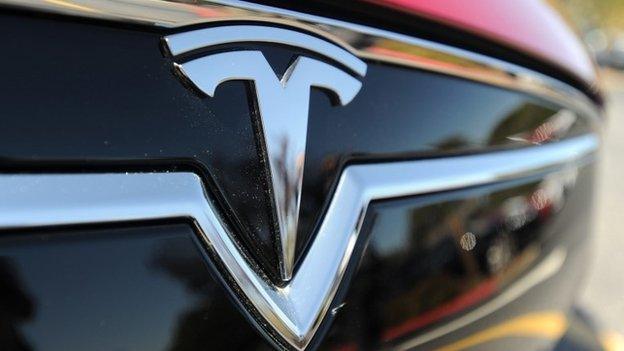
- Published22 July 2020
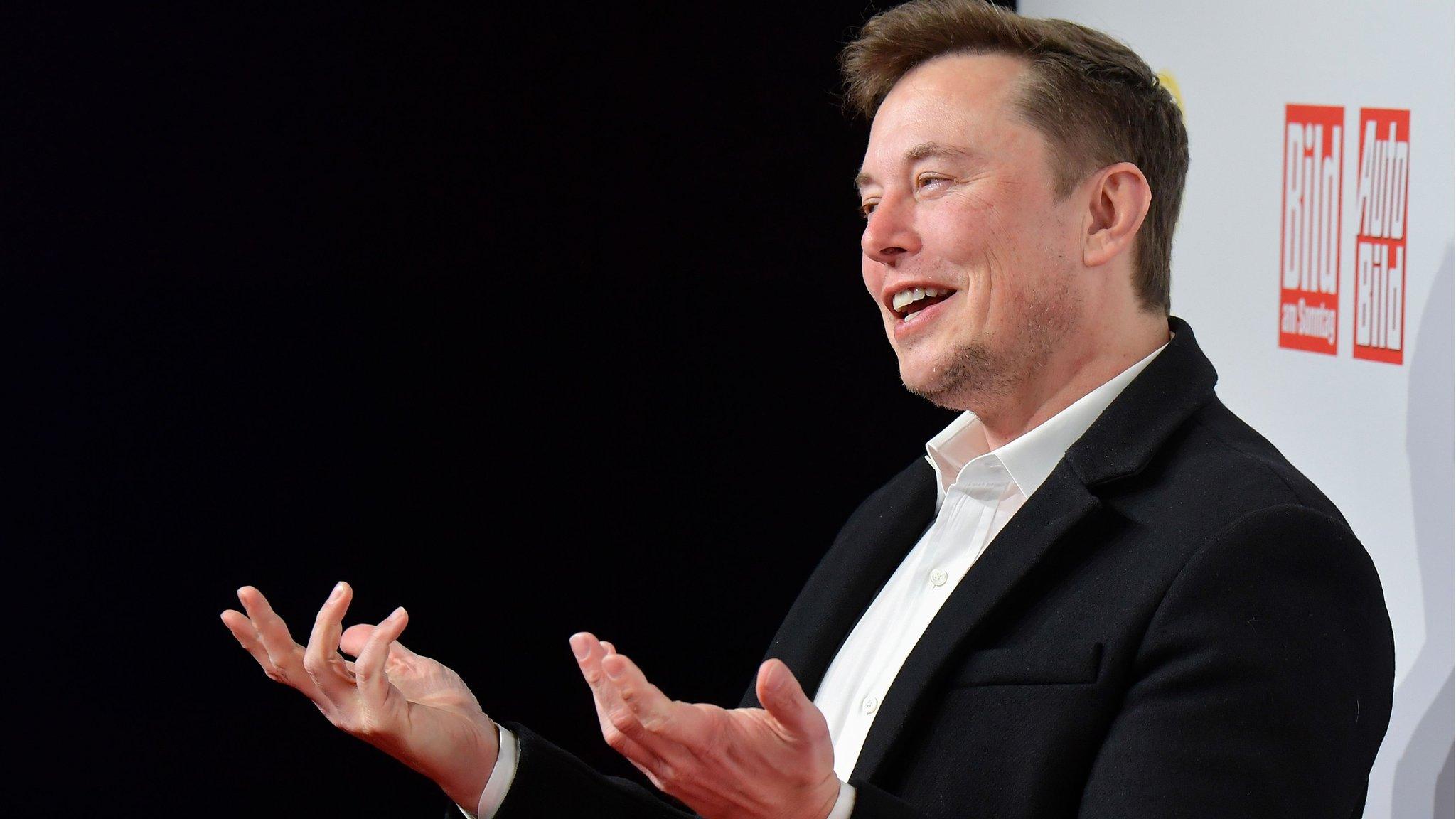
- Published15 July 2020

- Published1 July 2020
